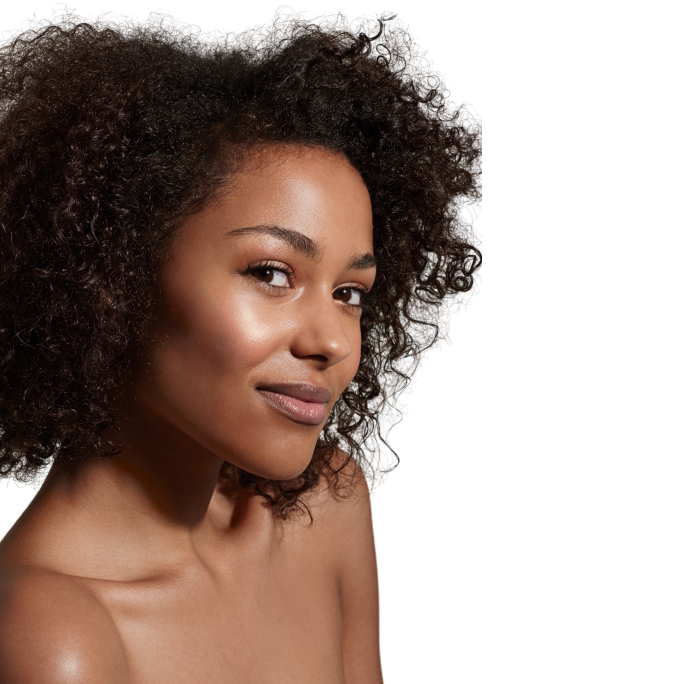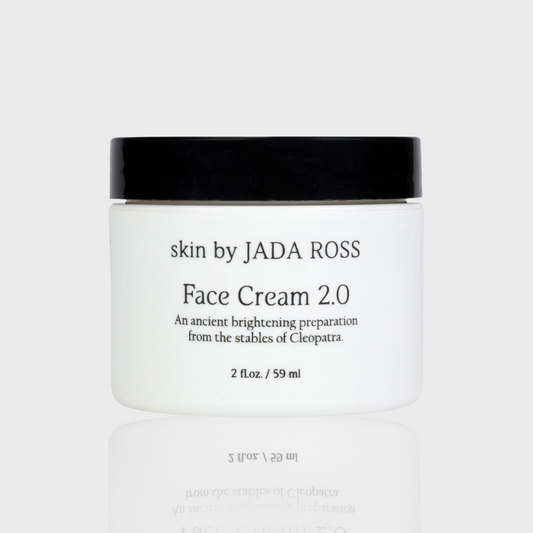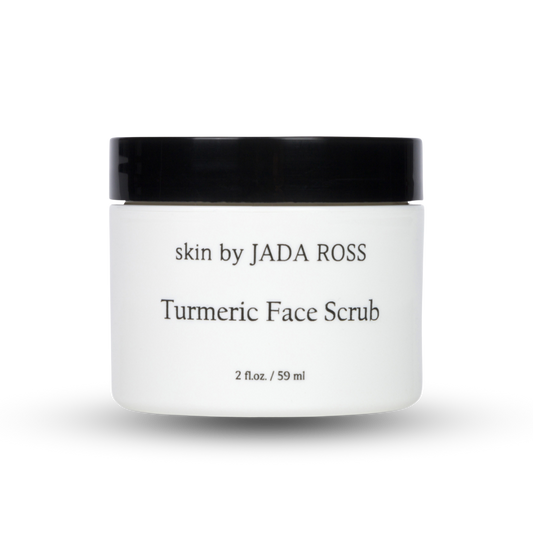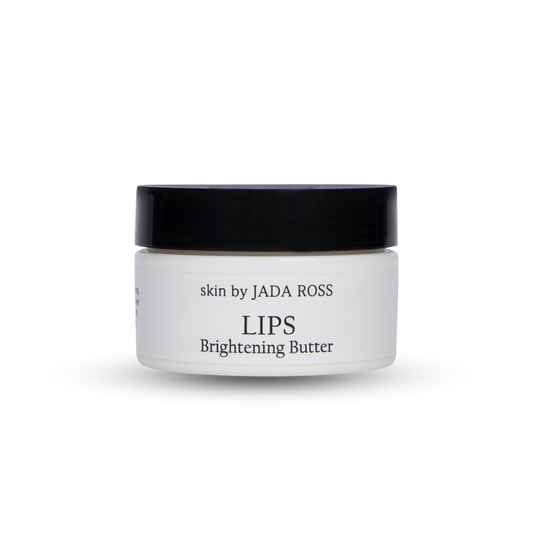Top 5 Skin Concerns for Black Women and Solutions
Skincare is essential to every woman's routine, and Black women, with their unique and beautiful melanin-rich complexions, deserve special care. While the richness of melanin offers remarkable beauty, it also brings its own set of specific challenges. From hyperpigmentation to dryness, Black women often face skin concerns that differ from those of other skin types. Addressing these concerns with targeted skincare solutions is crucial to achieving healthy, glowing skin.
In this blog, we discuss five common skin concerns that Black women face and provide practical solutions to help them overcome those challenges. Once you become more aware of your skin needs, you can craft a regimen that addresses these concerns while bringing out your complexion's natural beauty.

Top 5 Skin Concerns for Black Women
Hyperpigmentation
Black women suffering from hyperpigmentation should notice the signs, as it has become one of the leading issues among women. Enlarged areas of pigmentation result in the darkened area being darker than the surrounding skin. These marks can be acne scars, sun damage, or hormonal fluctuations (premenstrual and due to pregnancy or contraceptives). Hyperpigmentation is not in and of itself dangerous, but it does play with most people's self-confidence.
✅Causes of Hyperpigmentation: For Black women, hyperpigmentation can be triggered by several factors:
Post-Inflammation Hyperpigmentation (PIH): This could be classified as a type of hyperpigmentation that may occur when dark spots or pigmentation patches develop subsequently to a bout of dermal inflammation such as acne, rashes, or even burns. PIH is detachable as the term is melasma, but in the rest of the population, it's more prevalent with African Americans naturally.
Sun Exposure: Black women do not have to get sun damage, but this does not guarantee women are safe. However, over time, the sun can lead to the development of pigmentation and irregularities.
Hormonal Changes: These are events such as birth, attempts to give birth through birth control means, melasma, or even pregnancy where factors increase.
✅Skin Concerns Solutions for Hyperpigmentation:
Brightening Serums: Brighten your skin with a serum containing active ingredients like alpha arbutin, vitamin C, or turmeric extract. Continue using the serum until hyperpigmentation fades or your skin tone becomes even.
Exfoliation: AHAs and BHAs that contain tremendous quantities of both can be utilized for regaining the state of the skin as they improve the revitalization of the cells and soften the thickening of the gray hairs over time, which leads to fading darker spots while giving a base of the skin that is smoother and even in the range of the skin.
Chemical Peels: Although deep chemical peels vary in implanted seams, and these seams are not visible from the skin surface, quite a long way chemical interior was hidden, chemical peels can offer strong forms to achieve even skin tone while satisfying the hyperpigmented spots.
Sunscreen: One of the vital components of sun protection is sunscreen. In addition to stopping the existing pigmentation from getting worse, it also aids in defending the skin from UV rays that can cause harm.
Dry Skin and Dehydration
Dry skin and dehydration can leave Black women with tight, rough, and often dull-looking skin. If dry skin describes a lack of natural oils on the surface, dehydration happens when the skin lacks water. Many Black women could have both due to environmental factors or by using skin care products that dry the skin.

✅Causes of Dryness and Dehydration:
Weather: Severe winters or scorching summers can dry out the skin, making it flaky.
Skincare Products: Using harsh cleansers, toners, or exfoliants too often can strip the skin's natural oils and cause dryness and irritation.
Genetics: Dry skin in Black women is also sometimes hereditary and typically occurs in specific places on the body, including the legs, arms, and face.
✅ Skin Concerns Solutions for Dry Skin and Dehydration:
Moisturizers: Choose thick, emollient moisturizers with shea butter, jojoba oil, or cocoa butter. These ingredients are both hydrating and work to seal in moisture.
Hydrating Serums: Hyaluronic acid is an absolute powerhouse ingredient that pulls moisture into the skin. Choose serums that contain this hydrating molecule to help skin stay plump and soft.
Do not use harsh cleansers: Soap and harsh cleansers can remove the skin's oils. Instead, reach for soothing, hydrating cleansers that won't strip moisture from your skin.
Facial oils: Use nourishing oils like rosehip, argan, or marula oil for an added boost of hydration. These oils are lightweight and work better for sealing in moisture without clogging pores.
Acne and Breakouts
Acne and breakouts are not only a teenage issue—they affect Black women no matter the age. Acne can take on many guises—whiteheads, blackheads, cysts, and pustules—and for Black women, it can be challenging because of the prospect of scarring and hyperpigmentation once breakouts have resolved.
 ✅Causes of Acne:
✅Causes of Acne:
Hormonal Changes: Hormonal changes due to menstruation, pregnancy, or birth control pill irregularities may result in acne flare-ups.
Clogged Pores: Heavy, comedogenic products can lead to clogged pores if not removed properly from the skin.
Diet and Lifestyle: Diets rich in sugar, dairy, or refined carbohydrates can make acne more likely. And stress, poor sleep, or erratic skin care can worsen breakouts.
✅ Skin Concerns Solutions for Acne:
Cleansing: This mild, non-foaming cleanser helps eliminate excess oil and dirt without causing skin irritation. Eschew aggressive scrubbing that may irritate the skin.
Topical treatments: Benzoyl peroxide, salicylic acid, and tea tree oil are known to combat acne-causing bacteria, help reduce inflammation, and tackle breakouts.
Exfoliation: Use chemical exfoliants such as salicylic acid to help keep pores unclogged and skin even. Just take care not to over-exfoliate.
Spot Treatments: Apply spot treatments with sulfur or benzoyl peroxide for active breakouts. Use them directly on the area affected after cleansing and before moisturizing.
Ingrown Hairs
Ingrown hairs are common, particularly in the legs, armpits, and bikini regions. It is when the hair returns to the skin instead of outwards, in which case the hair shaft can cause bumps, redness, and, in some cases, inflammation. Ingrown hairs are most common in cases of Black women, as due to the curly nature of their hair, the direction of growth is not uniform. Thus, the hair is more likely to regrow back into the skin.
 ✅Causes of Ingrown Hairs:
✅Causes of Ingrown Hairs:
Shaving or Waxing: Shaving, waxing, or other hair removal methods can make the hair grow inwards instead of outwards, causing ingrown hairs.
Curly Hair: Black women with naturally curly or oily hair may be more prone to ingrown hairs because they can curl back into their skin.
Tight Clothing: Tight clothing can push hairs back under the skin, increasing the risk of ingrown hair.
✅Skin Concerns Solutions for Ingrown Hairs:
Exfoliate Regularly: Use of scrubs, chemical exfoliants, and other forms of exfoliation can help in the removal of dead skin, preventing hair from being buried into the skin.
Avoid Shaving: People can consider hair removal methods that do not irritate the skin, like laser hair removal, or choose waxing and not shaving.
Moisturize your skin: Moisturizing the skin can improve any irritation and help the hair grow on the outside rather than on the inside of the skin.
Apply ingrown hair treatment products: Using products that are salicylic or glycolic can be helpful in the prevention and treatment of ingrown hairs since they assist in removing clogged pores and bumps on the skin's area.
Uneven Skin Tone and Texture
An uneven skin tone or rough texture can be a frustrating skincare concern for Black women. Acne, sun damage, or dehydration can all create uneven skin that looks patchy, dull, and/or textured. While this is a common concern, many seek smoother skin tone and texture.
✅Causes of Uneven Tone and Texture:
Unprotected Sun Exposure: The sun can cause problems without appropriate protection, including dark patches from excessive sun exposure and lively wrinkles.
Dehydration: Insufficient water may result in dry, flaky skin that appears rough.
Skin Injury: Dark-colored marks on patches of skin or uneven skin textures may often result from scarring from old wounds or even untreated acne.

✅ Skin Concerns Solutions for Uneven Tone and Texture:
Exfoliation: Regular physical and chemical exfoliation will help even the skin texture by speeding up the turnover of dead skin and other weathered cells on the skin's surface.
Vitamin C: Topical Vitamin C has undoubted effectiveness in lightening and evening out dark spots, resulting in a more uniform skin appearance.
Hydrating Products: Rough patches on the skin due to lack of moisture can easily be repaired by applying hydrating agents such as serums, oils, and heavy moisturizers.
Addressing skin concerns as a Black woman begins with understanding your skin's unique needs. From hyperpigmentation to dryness and sun protection, the key is to embrace targeted solutions tailored to melanin-rich skin. By incorporating these tips and solutions into your daily routine, you can achieve a glowing, healthy complexion that enhances your natural beauty.
Remember, your skin reflects your self-care and confidence. Celebrate your melanin, and don't hesitate to seek professional advice if needed. With the right approach, every Black woman can overcome her skin concerns and enjoy radiant, healthy skin.






Leave a comment
Please note, comments need to be approved before they are published.